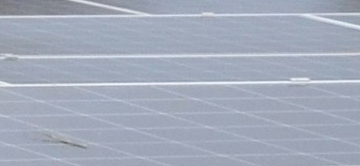The French fishermen who are trying to prevent the nibbling of their fishing grounds by offshore wind farms have seen their appeal against the granting of state aid to investors rejected by the Court of Justice of the European Union. The legal reasons for this dismissal are singularly lacking in economic substance.
Losses and complaints galore
Times are hard for the fishermen of the Bay of Saint Brieuc, who must fight on all fronts to keep their fishing grounds. Following the Brexit, their access licenses to Channel waters are dependent on haggling between governments. They also must suffer the installation of wind turbines at sea. In French waters, six wind farms are currently under construction or in the process of being built. Even if fishermen are not the only ones opposed to offshore wind farms, they are in the front line because of a foreseeable loss of income. For the moment, they can only count on 35% of the offshore wind tax paid each year by the operators (currently 16 301€ per megawatt installed). It is therefore not surprising that they resort to the courts to obtain either bans or compensation.
Thus, on August 26, 2021, fishermen from the Côtes-d'Armor filed a complaint against the Saint Brieuc wind farm. The reasons given are the release of polluting substances and the damage to the conservation of animal species and natural habitats. The criminal complaint concerns the entire project and requests the immobilization of the installation vessel Aoelus.
A few days later, they referred the case to the National Financial Prosecutor's Office on the charge of concealment of the offence of undermining the equality of candidates in public contracts during the award of concessions for the use of the public maritime domain. In September, they filed an appeal before the Rennes Administrative Court for disregard of the precautionary principle. They asked for the suspension and then the cancellation of the decree authorizing the ship Aeolus to go to the construction site of the offshore wind farm on the grounds that it had suffered two leaks of hydraulic fluid in less than two months, endangering the scallops. This request was rejected by the Administrative Court of Rennes in an order given on October 13.
The attack thus combines environmental arguments (fight against pollution, protection of fisheries resources) and procedural arguments (concealment of favoritism). But the fishermen have also ventured into the field of competition law to access the European Union.
Preferential tariffs and state aid
Because they risk distorting competition within the European Union, state aid is prohibited, unless ... Measures taken to tackle global warming are one of the exceptions. So, when the French government grants to wind turbine operators (classified as green technologies) electricity sales tariffs negotiated outside the market, it is indeed a state aid that falls within the scope of the exceptions since wind is a decarbonized energy source. After being asked by the French government about the validity of the preferential tariffs that will be granted to wind turbine operators at the six sites concerned, the European Commission considered that "the positive environmental effects of each of these six measures outweigh the possible negative effects of limited distortion of competition" and gave the projects the green light (decision C(2019) 5498 final of 26 July 2019, point 112).
It was to obtain the annulment of this Commission decision that several fishermen's associations in the Channel and North Sea brought an action before the European Court of Justice.
Legal and economic interest
Like Hidalgo Don Quixote de la Mancha, French fishermen have launched an assault on the modern offshore windmills that encroach on their fishing grounds, with equally little success. Indeed, the Tribunal has rejected their appeal by a ruling of September 15, 2021. The main reason for the rejection can be summarized as follows: there is no electricity on the fishmonger's stall and fish is not traded on the electricity markets. In a nutshell, fishermen and wind power producers do not compete in the same markets. Therefore, fishermen have no basis for challenging the constituent elements of an activity that is foreign to them. In legal terms, they are not an “interested party” because they are not in a competitive relationship with the beneficiaries of the disputed aid (point 113 of the judgment).
For an economist, this legal notion of interested party is particularly narrow. How could a fisherman not be interested in being excluded from a fishing area? The plaintiffs did try to put forward that the areas where the wind farms are built are a common "raw material" whose use is essential to their activity, and therefore it is necessary to consider upstream competition and not downstream competition. It was retorted that while fishermen take the fishery resource, the operators of offshore wind farms use the kinetic energy of the wind (point 76 of the judgment). For the Tribunal, we are therefore in a binary world: up is up, down is down. However, it is obvious that the two activities cannot coexist in the same area, and the exclusion of an agent is the most extreme form of competition. The fishermen are wrong legally, but economically they are competing with wind turbines for the occupation of a given area on the surface of the sea (or air if we look from the top down). Their mistake is to have evoked the exploitation of a "raw material", i.e. a natural resource or a product, not transformed, used as an input in the manufacturing process of a good (point 78 of the judgment). The relevant economic concept would rather be to consider the water-air interface (i.e. the sea surface) as an "essential facility", with the particularity here that the two activities concerned are in conflict of use on a given area.
Given this incompatibility, one solution is to fragment the territorial waters into lots, some reserved for wind turbines, as is already the case with concessions for the use of the public maritime domain, others for fishermen with a commitment to exclusivity for the same duration. It would be 'everyone within its own borders' horizontally and not vertically.
Effect and cause
A second element of the legal argument leaves one wondering: if the fishermen are excluded from the zones where the wind turbines are installed, it is not because of the contested financial aid, it is because of the division of the maritime domain decided by the French government (point 90 of the judgment). However, the contested decision of the European Commission specifies that the purchase tariff (of electricity from wind turbines) was designed to subsidize the additional production costs of renewable energy production (point 95 of the decision). It can therefore be deduced that, without this compensation for the difference between the cost of producing electricity and the basic price of electricity (point 21 of the judgment), the investment would not be profitable. In other words, the tender would have remained unproductive. So no wind turbine at sea and no problem for fishermen: the areas concerned would have remained at their disposal.
*
* *
At the heart of the ecological transition, wind energy is a large consumer of space, not only on land, but also at sea. The Pluriannual Energy Program adopted on April 21, 2020 provides for the designation of developers for two floating wind projects with a nominal power of 250 MW in the Mediterranean (the public debate ends on October 31, 2021) and for a project for a 1 GW wind farm off the island of Oleron (public debate open until January 2022). There is therefore a risk that the number of appeals from fishermen in these areas will increase. The Don Quixote of the Charentes, Provence and Occitanie will want to fight against the "monstrous giants". Given the jurisprudence established in the Channel, they will have difficulty defending their interests. The use of the notion of "essential facility" would perhaps allow the regulatory winds to blow in their favor.





